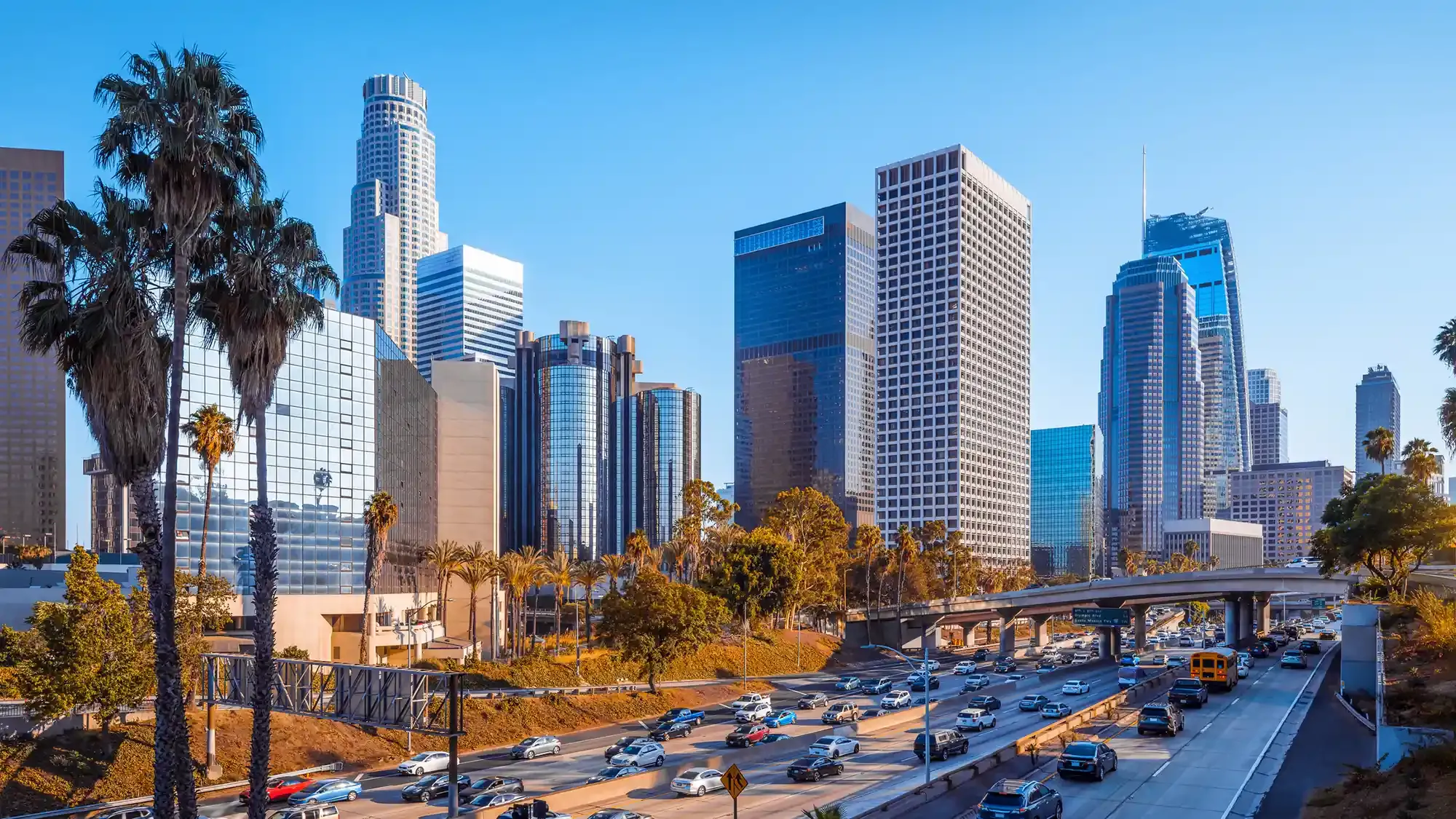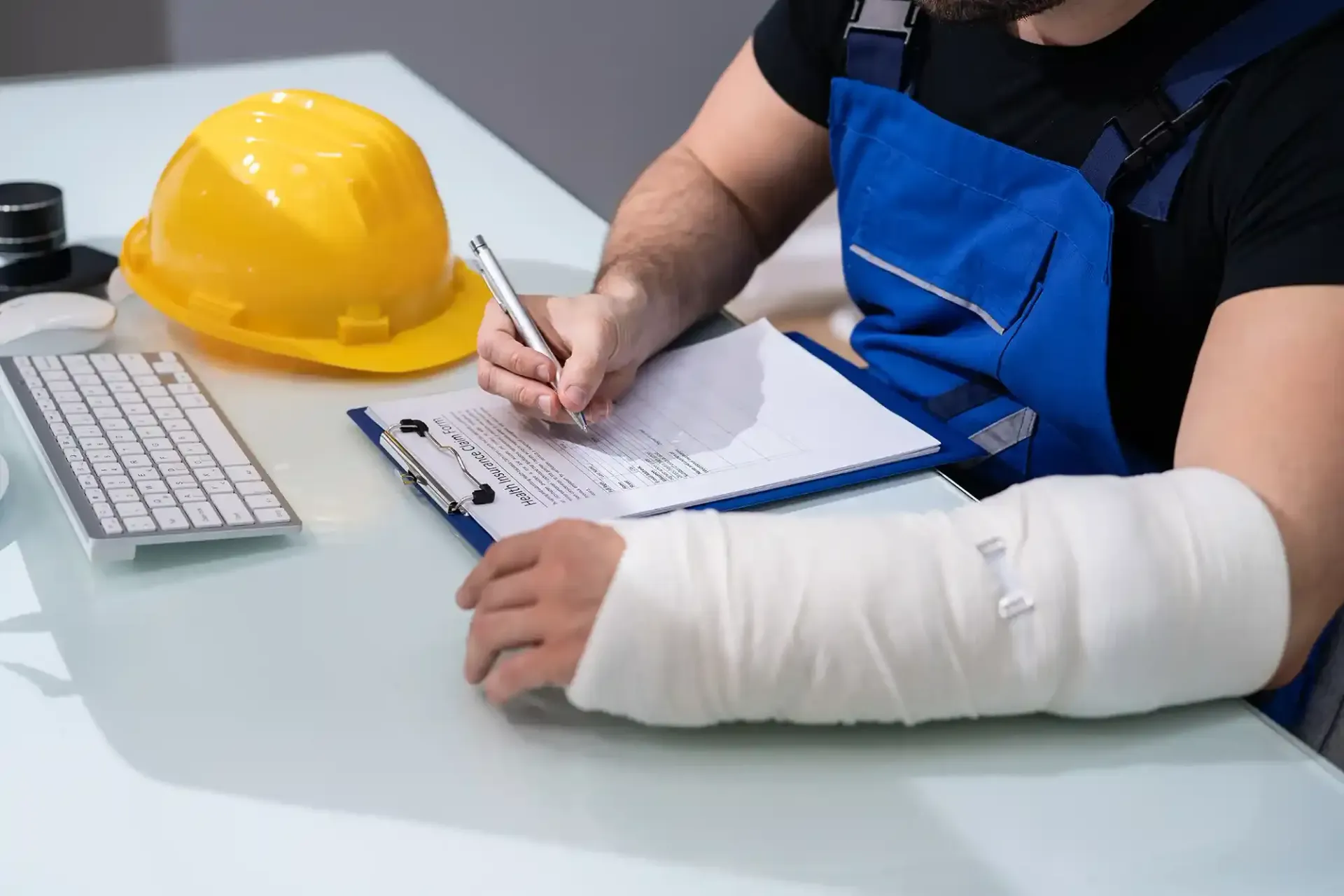Los Angeles Workers’ Compensation Laws and Regulations – Know Your Legal Rights
Sustaining an injury on the job can disrupt all aspects of your life, leaving you with enormous medical bills while taking you away from work. At Law Offices of Anthony Choe , we understand Los Angeles workers’ compensation laws and regulations and can help you receive the workers’ compensation benefits you are entitled to under California law.
Despite the pain and suffering workplace injuries can cause, many people do not prioritize healing because they are so worried about keeping their jobs. You should not have to choose between your health and financial security. There are laws in place to protect your rights, and a knowledgeable attorney can ensure your employer follows them.
If you have recently sustained a workplace injury or illness, you are not alone. In 2023, California saw 680,152 workers’ compensation claims and an overall injury rate of 3.6 per 100 employees. You also do not have to handle your case on your own. Instead, let our firm take care of the legal details while you focus on healing.
What Are Los Angeles Workers’ Compensation Laws and Regulations?
Los Angeles workers’ compensation laws are part of California’s no-fault system, providing benefits for employees who sustain injuries or illnesses on the job, regardless of fault. Through this system, the law requires employers to provide medical benefits and wage replacement for work-related injuries. Top causes of workplace injuries covered by California law include:
- Lifting at 8%
- Strain injuries at 7%
- Slip and fall accidents at 5%
- Repetitive motion at 5%
- Pandemic-related illness at 3%
- Cuts and punctures at 3%
The impact of these types of injuries can be devastating, taking you away from both life and work. Costs can also be expensive. Because of this, California laws and regulations exist to ensure you can receive the care you deserve.
Employee Rights Under Los Angeles Workers’ Compensation Laws
The idea that the law should protect workers and compensate for injuries or illness came about in the early 20th century. After the public became aware of the dangerous working conditions people had to endure, state and federal governments passed workers’ compensation laws to protect employees. Five categories of benefits workers could receive in their case include:
- Care relating to medical injuries
- Short-term payments for any disability that you may have suffered.
- Any benefits for permanent disability
- Any supplemental payments needed for job changes
- Benefits should your injury result in death
Both private industry and public sector employers must follow workers’ compensation laws, and injuries can occur in any field of employment. In 2023, there were 363,900 private industry injury and illness reports in California. Regardless of where you work, you have rights that the law protects, and your employer must follow.
Regulated Employer Obligations
In addition to outlining employee rights, state workers’ compensation laws also require employers to follow certain regulations if they have employees. To ensure employees can pay for work-related injuries and illnesses, employers must:
- Carry insurance . Employers must have workers’ compensation insurance or be self-insured.
- Face penalties for non-compliance . Failing to provide insurance is a criminal misdemeanor that can include fines and jail time.
- Notify employees . Employers must post notices to inform employees of their rights.
- Report claims . Employers must report work-related injuries using specific forms.
- Meet contractor requirements . Contractors must provide a certificate of workers’ compensation insurance to the state or certification of exemption if they have no employees.
Although there are laws in place to protect you, it can be difficult to understand them and how to apply them to your situation. Working with an attorney can lift the legal burden off your shoulders and help ensure your employer follows all laws and regulations.
Hire a Workers’ Compensation Lawyer
Trying to navigate a workers’ compensation claim on your own can be daunting, especially when you are trying to recover. At the Law Offices of Anthony Choe, our workers’ compensation attorney has extensive experience working on workers’ compensation cases. When you hire an experienced workers’ compensation lawyer at our firm, both English and Spanish services are available.
The workers’ compensation claims process can be confusing. For example, a case may go to the County of Los Angeles Workers’ Compensation Claim Management Unit for county employees, the City of Los Angeles Workers’ Compensation Division for city employees, and the local Division of Workers’ Compensation office for general oversight and judicial services.
At the Law Offices of Anthony Choe, we are familiar with the complexities of Los Angeles workers’ compensation laws and regulations. When you work with our workers’ compensation attorney, we can walk you through every step of the process, ensuring all paperwork is correct and goes to the right place.
FAQs
Can My Employer Fire Me for Filing a Workers’ Compensation Claim?
An employer cannot fire you for filing a workers’ compensation claim in California. According to the law, firing an employee in retaliation for filing a claim is illegal and falls under wrongful termination. With that said, an employer can fire you for legitimate, non-retaliatory reasons unrelated to the claim, such as poor performance or company-wide layoffs.
What Is the New Law for Workers’ Comp in California?
Two recent changes to workers’ compensation laws in California have been Assembly Bill 1870 and Senate Bill 216. With Assembly Bill 1870, employers must post updated notices about workers’ compensation rights, and there is an increase in disability benefits. Senate Bill 216 requires some contractors without employees to carry workers’ compensation insurance.
What Are the Four Elements of a Workers’ Compensation Claim?
The four basic elements of a workers’ compensation claim are: an employer-employee relationship, a work-related injury or illness, timely notice to the employer, and the injury requiring medical treatment. Employees must prove these elements to receive benefits because workers’ compensation is a no-fault system that covers injuries within the scope of employment.
What Should I Not Say to a Workers’ Comp Adjuster?
When it comes to speaking to a workers’ compensation adjuster, there are several things you should not say. For example, you should never downplay your injury, admit fault, speculate about returning to work, or give unnecessary personal details to a workers’ comp adjuster. Avoid apologizing and do not agree to anything before speaking to a workers’ compensation attorney.
Los Angeles Workers’ Compensation Laws and Regulations
If you are struggling to navigate complicated Los Angeles workers’ compensation laws and regulations, the Law Offices of Anthony Choe can help. Contact us today to schedule your free consultation and receive the justice you deserve.













